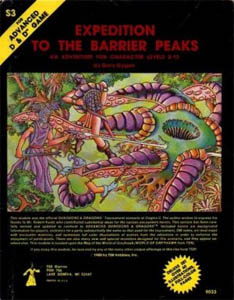
Expedition to the Barrier Peaks is a 1980 adventure module for the Dungeons & Dragons role-playing game written by Gary Gygax. While Dungeons & Dragons (D&D) is typically a fantasy game, the adventure includes elements of science fiction, and thus belongs to the science fantasy genre. It takes place on a downed spaceship; the ship's crew has died of an unspecified disease, but functioning robots and strange creatures still inhabit the ship. The player characters fight monsters and robots, and gather the futuristic weapons and colored access cards that are necessary for advancing the story.

Dragon Strike is a 1993 adventure board game from TSR, Inc. based on the Dungeons & Dragons (D&D) fantasy role-playing game. It was intended to be a pathway for beginners to start with, and for players to eventually play the full Advanced Dungeons & Dragons tabletop game after kindling their interest.
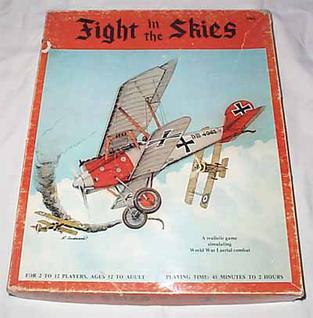
Fight In The Skies, also known as Dawn Patrol, is a board wargame first self-published by creator Mike Carr in 1966, then published by Guidon Games in 1972 and TSR in 1975. The game simulates World War I style air combat, and is the only game to appear on the event schedule of every Gen Con convention since Gen Con I.
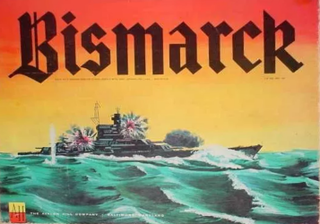
Bismarck is a board wargame published by Avalon Hill in 1962 that simulates the hunt for the Bismarck.

Fate: Undiscovered Realms is an action role-playing roguelike video game developed by WildTangent and released on July 17, 2008, as a stand-alone expansion to the 2005 PC game Fate. The retail version sold in stores includes the original game as well. It was followed by a second expansion, Fate: The Traitor Soul, in 2009.

Belter, subtitled "Mining the Asteroids, 2076", is a science fiction board game published by Game Designers' Workshop (GDW) in 1979.

Mythology, subtitled "A Game of Adventure in the Age of Heroes", is a fantasy board game published by Yaquinto Publications in 1980.
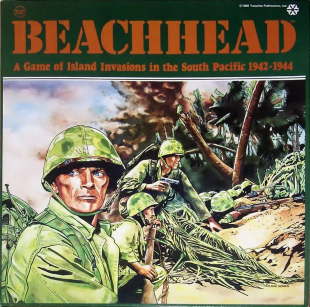
Beachhead, subtitled "A Game of Island Invasions in the South Pacific 1942–1944", is a board wargame published by Yaquinto Publications in 1980 that simulates amphibious landings in the Pacific Theatre during World War II.
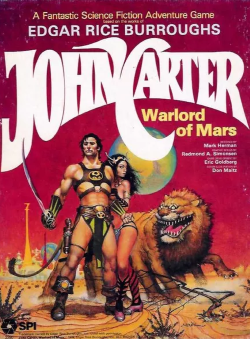
John Carter: Warlord of Mars is a two-player board game published by Simulations Publications, Inc. (SPI) in 1979 that is based on the Barsoom novels of Edgar Rice Burroughs featuring the hero John Carter.

The Barbarians, subtitled "Games of the Fall of Rome and the Mongol Invasion of Europe", is a set of two board wargames published by Yaquinto Publications in 1981.
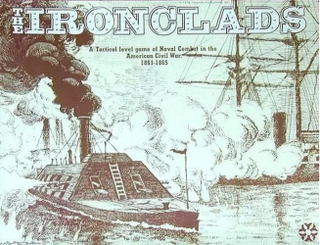
The Ironclads, subtitled "A Tactical Level Game of Naval Combat in the American Civil War 1861–1865", is a board wargame published by Yaquinto Publications in 1979 that simulates American Civil War naval combat.

Labyrinthine is a fantasy board game published by Wee Warriors in 1977. Based on themes taken from the then-newly published Dungeons & Dragons, Labyrinthine was the first "dungeon crawler" board game to use a totally modular board that was reconfigured for each game.

Europe Aflame is a board wargame published by TSR in 1989 that simulates the European and Middle East theatres of World War II.

Arcola, The Battle for Italy 1796 is a board wargame published by Operational Studies Group (OSG) in 1979 and republished by Avalon Hill in 1983 that is a simulation of the Battle of Arcola between French and Austrian forces in 1796. The game was designed to tempt players to purchase OSG's previously published and larger wargame Napoleon in Italy.
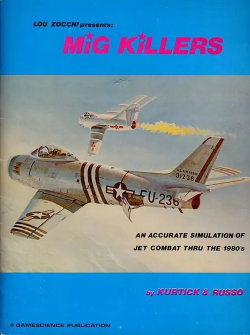
MiG Killers is a board game published by Gamescience in 1977 that simulates combat between jet aircraft from 1945 to 1977.
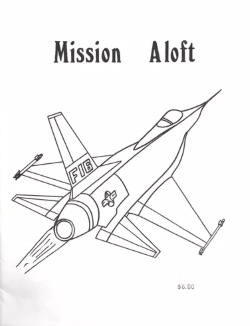
Mission Aloft is a board wargame published by Jim Bumpas in 1977 that simulates aerial missions against ground targets in the 1960s and 70s.
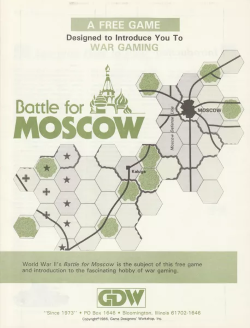
Battle for Moscow is a short and simple board wargame published by Game Designers' Workshop (GDW) in 1986 that simulates Operation Typhoon, the German attempt to quickly capture Moscow during the opening days of their surprise invasion of the Soviet Union in 1941 during World War II. The game was designed as a free giveaway to try to introduce new players to wargaming.

Close Assault: A Man-to-Man Game of Squad Tactics and Command - Europe 1939–1945 is a board wargame published by Yaquinto Publications in 1983 that simulates squad-level combat during World War II.

The Fall of South Vietnam, subtitled "A Game of Combat in South Vietnam – 1973-1975", is a board wargame published by Yaquinto Publications in 1981 that simulates the final months of the Vietnam War. Reviewers found it too simplistic to cover the complex military situation in South Vietnam.
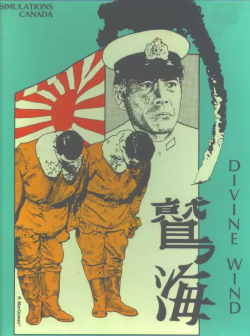
Divine Wind, subtitled "Japan in the Pacific, 41–45", is a strategic board wargame published by Simulations Canada in 1981 that simulates the Pacific Campaign during World War II.




















